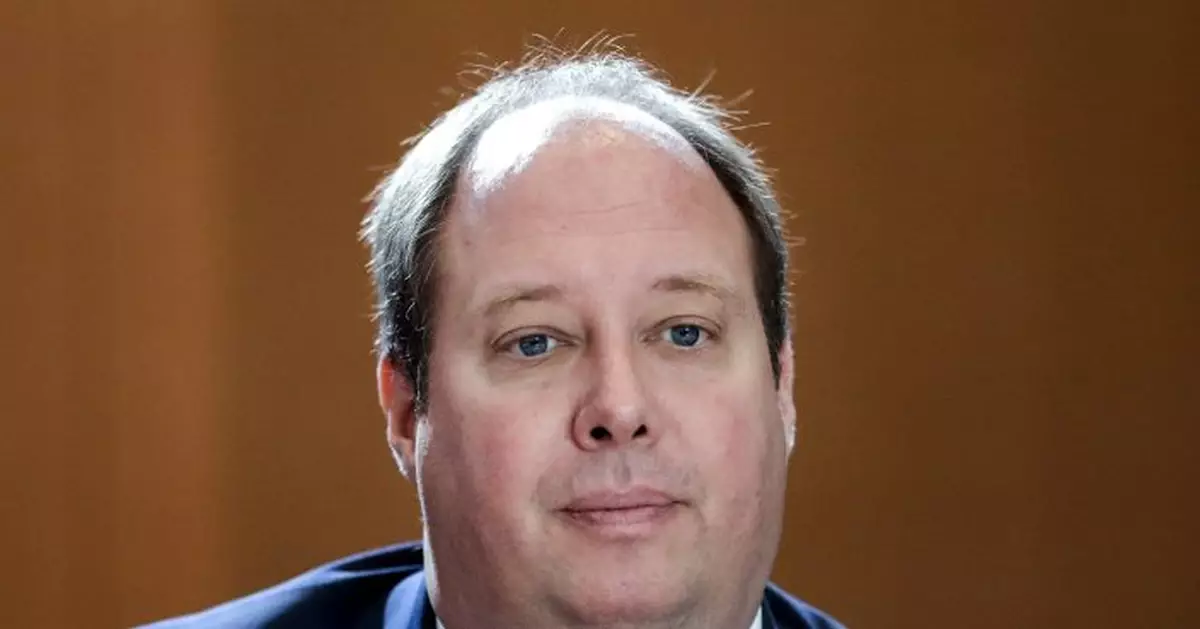A former German environment minister and outgoing Chancellor Angela Merkel's chief of staff both announced that they will run for the leadership of Merkel's center-right party on Friday as the race to head it in opposition started to take shape.
The Christian Democratic Union has decided to hold a ballot of its entire roughly 400,000-strong membership on who will take over after incumbent Armin Laschet led it to defeat and its worst-ever national election result in September.
Nominations opened on Saturday but it took nearly a week for Norbert Roettgen to become the first officially to declare his candidacy. It is Roettgen's second run — he finished third when Laschet was elected in January.
Roettgen, 56, served as environment minister a decade ago and headed the foreign affairs committee in the last German parliament.
“We lost votes and elections in the center, and we will win back these votes in the center,” Roettgen told reporters in Berlin. He said that the party must “fight for the young generation” and argued that the CDU and its leader “must embody competence and credibility in climate policy.”
Roettgen argued that the CDU needs a “fundamental renewal” to preserve its status as a major party.
Merkel's chief of staff since 2018, Helge Braun, threw his hat in the ring later Friday. Braun, 49, announced his candidacy at a meeting of the party's branch in his home state of Hesse, regional governor Volker Bouffier said.
At least one more contender is in sight: conservative favorite Friedrich Merz is widely expected to make his third bid in three years after narrowly losing two previous contests. Outgoing Health Minister Jens Spahn, who was considered a likely contender, has ruled himself out.
This contest will be the third since Merkel stepped down as party chairwoman in late 2018 and announced she wouldn’t seek a fifth term as chancellor.
Both Laschet and predecessor Annegret Kramp-Karrenbauer were narrowly elected by party congresses after three-way battles for the leadership. Both struggled to impose their authority. This time, local party bosses demanded a say for the wider membership.
Merz, 66, has a substantial following among CDU members, while Roettgen's previous run established him as a serious prospect for centrists in the party.
Braun's candidacy was unexpected, though. The emergency room doctor and close ally of the outgoing chancellor, another centrist, has coordinated Germany's fight against the COVID-19 pandemic but so far hasn't featured prominently in his party's internal politics. His prospects are uncertain.
Braun told the Welt am Sonntag newspaper that the party needs a “comprehensive reform, not just in terms of substance but also organizationally” and that he would offer a “cooperative leadership style.”
The two-party Union bloc, in which the CDU is by far the bigger party, finished behind the center-left Social Democrats in the election with only 24.1% of the vote. The Social Democrats are negotiating with two smaller parties to form a coalition government, which they hope will take office in early December, sending the Union into opposition.
A first round of voting on the new leader, by online and mail-in ballot, will be held in early December. If a runoff ballot is required, that would be completed in mid-January. A party congress Jan. 21-22 would officially sign off on the result.
Follow AP’s coverage of Germany’s transition to a new government at https://apnews.com/hub/germany-election


